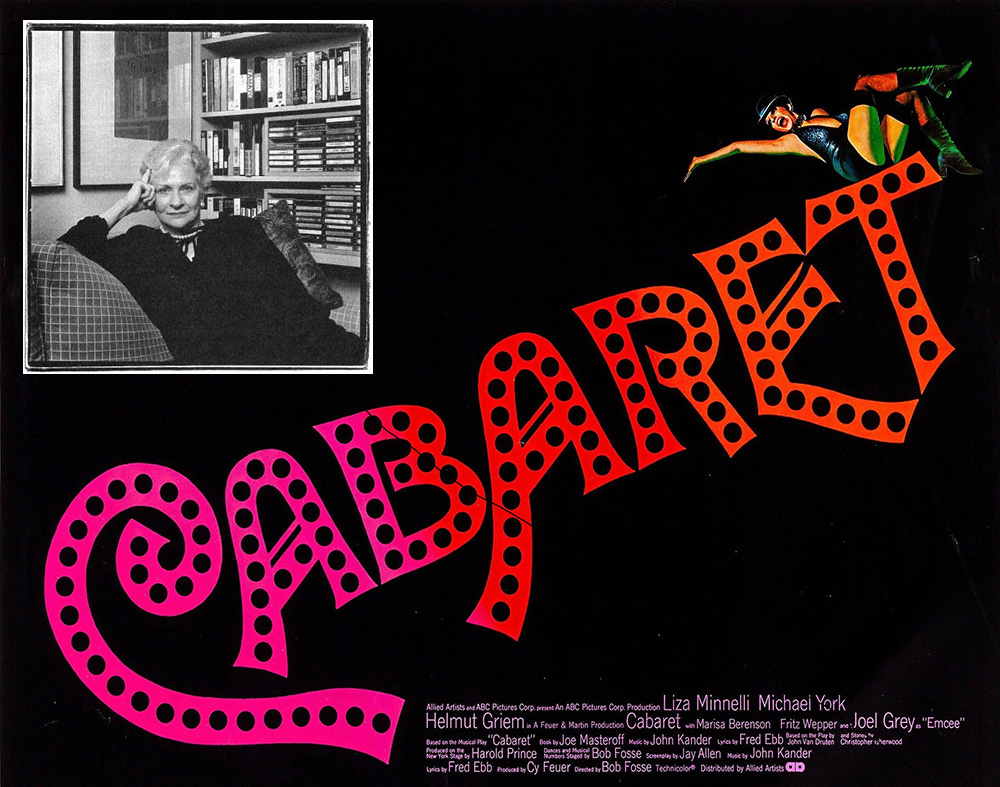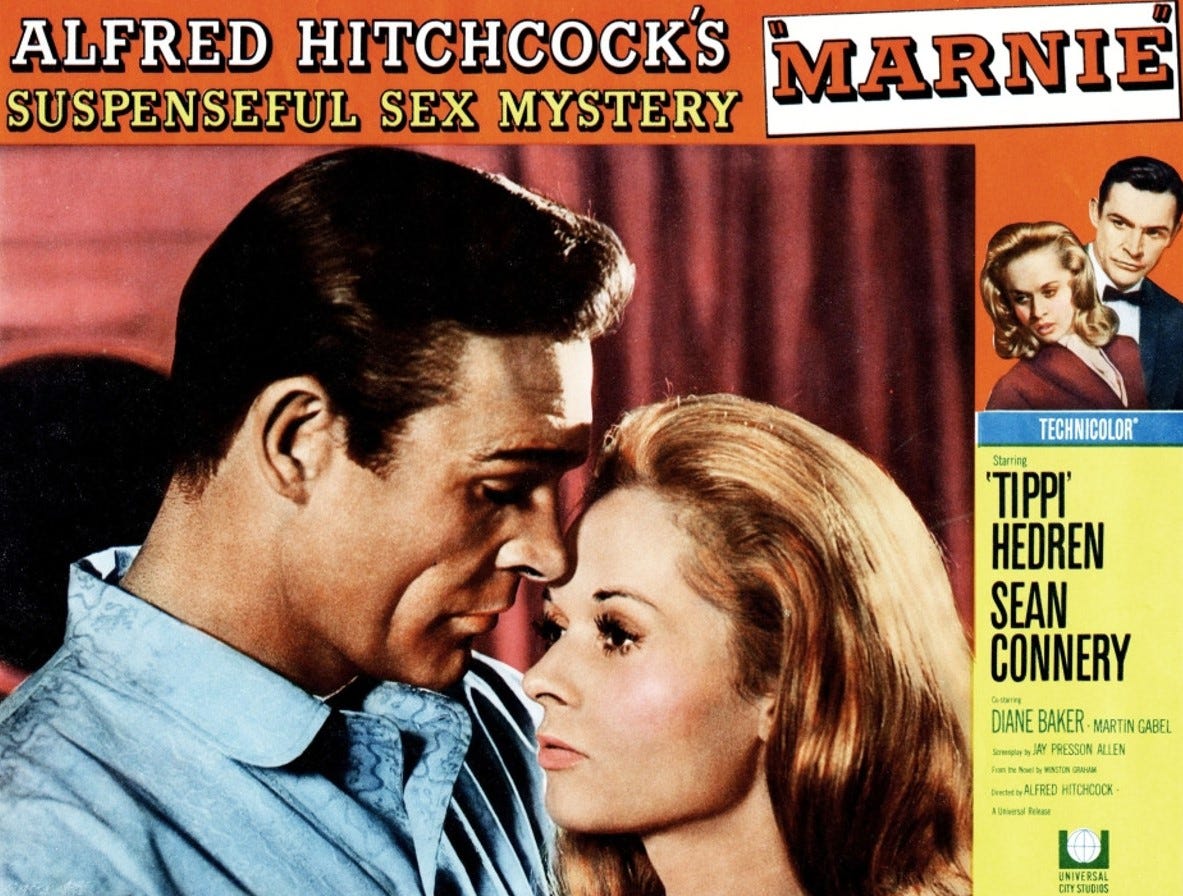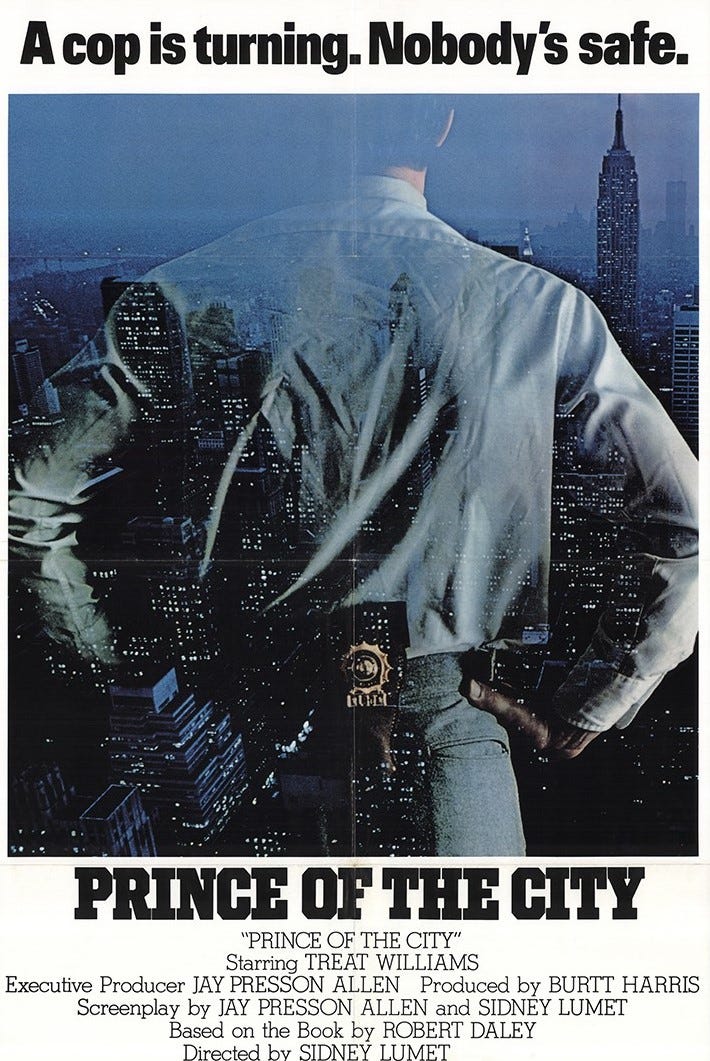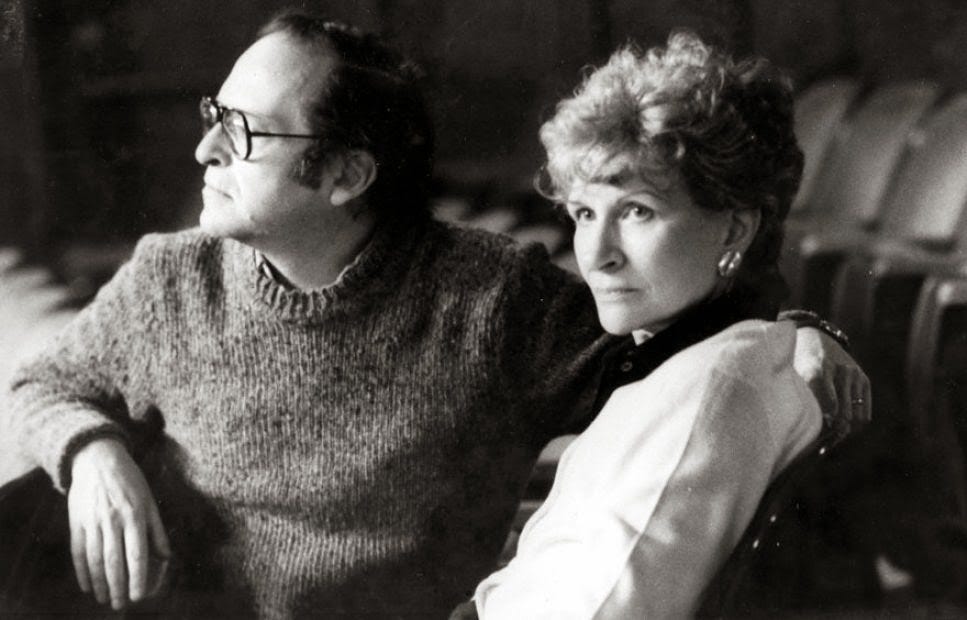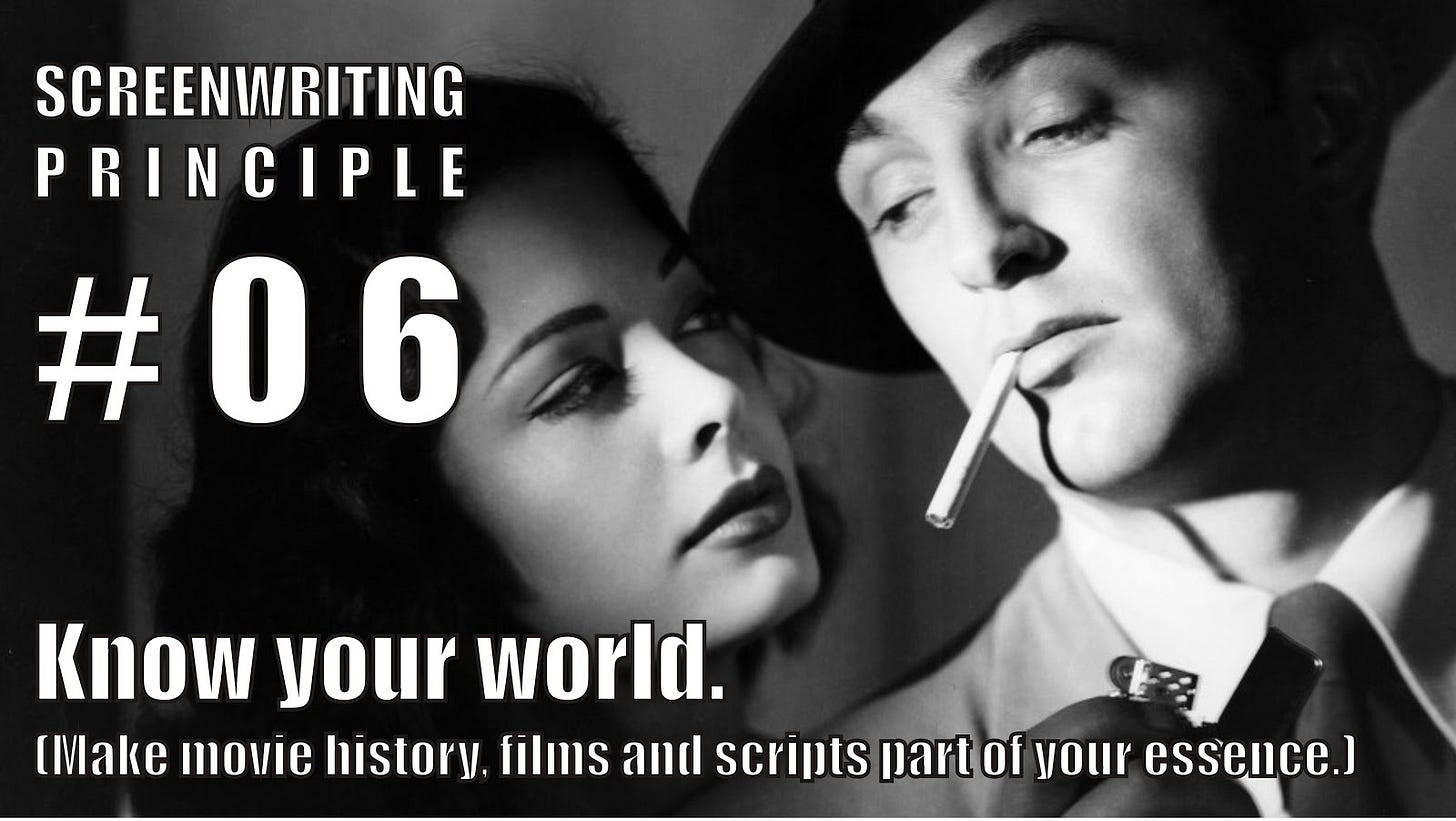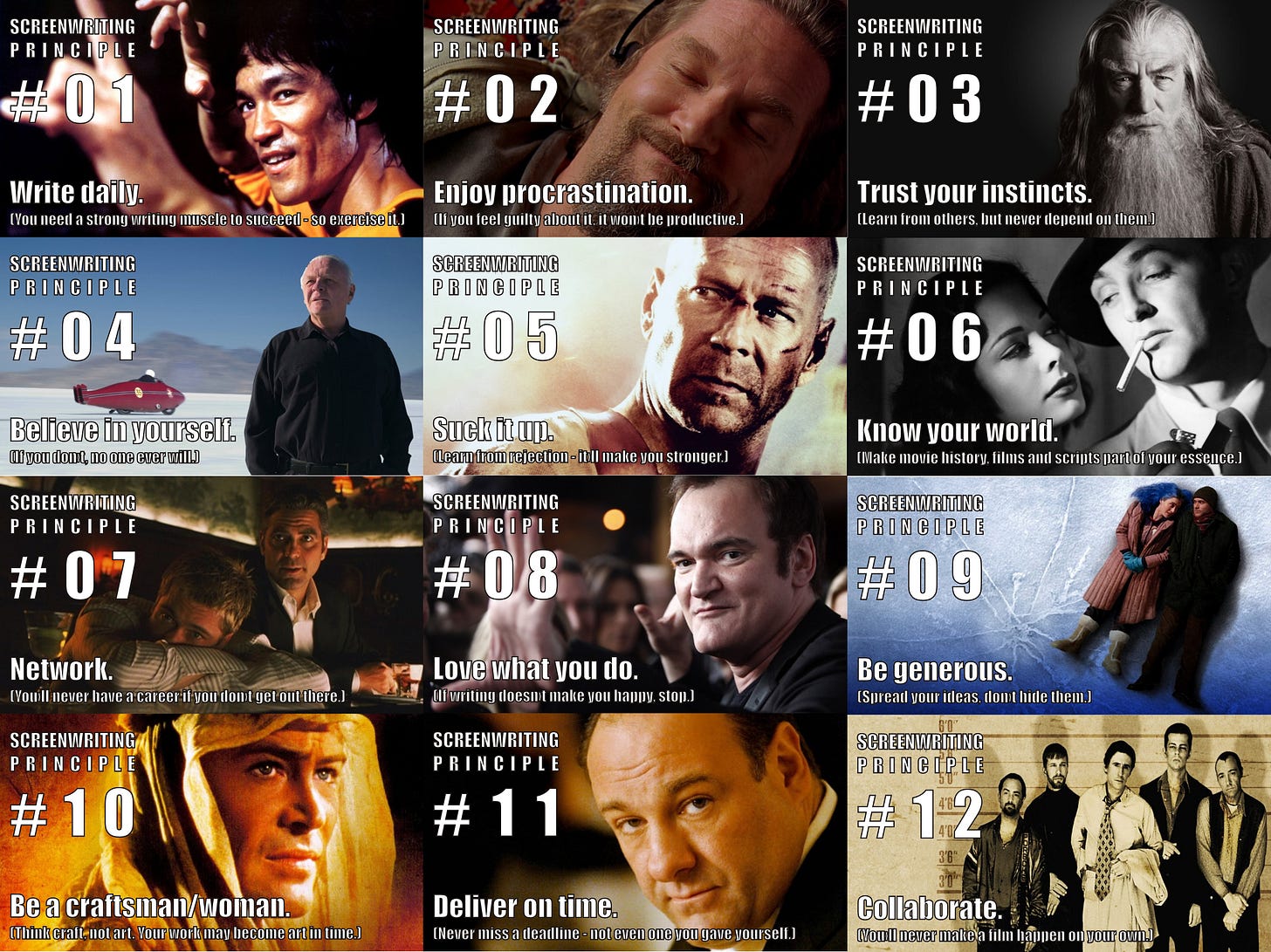Cabaret! The fascinating life of Jay Presson Allen, adapter extraordinaire
Jay Presson Allen once remarked: "The trick in adapting is not to throw out the baby with the bath water. You can change all kinds of things, but don't muck around with the essence."
In her hugely successful screenwriting life, Jay Presson Allen wrote the adaptations for “The Prime of Miss Jean Brodie” (1966), “Marnie” (1964), “Cabaret” (1972) and “Prince of the City” (1981), among many other screenplays.
Jay Allen, as she usually called herself, began to write for television in the nineteen fifties, at a time when women writers were still a rare sight (maddeningly, even today we’re still far, far from parity). Interested in another woman trailblazer? Here’s the story of the amazing Leigh Brackett.
Born in Texas, Jay (short for Jacqueline) moved to New York in the forties with the dream of becoming an actress, then eventually realized that she preferred writing (as a playwright and for television initially). Come to think of it, the woman and I share a number of things, writing adaptations (here are mine), and going from acting to writing. Well, there the similarities end, because in my case, while Hollywood did call, it hasn’t yet clicked. In her case, the call from Hollywood came in 1963 - and on the other end of the line was none other than Alfred Hitchcock (who wanted her to work on Marnie). From there, she was and remained a highly prolific and successful writer.
For more about the making of Marnie, including Allen’s screenplay, visit here.
In Backstory 3, Pat McGilligan interviewed Allen - follow the link, excellent, in-depth interview that’ll give you a real sense of her screenwriting life. After a divorce she moved from California back to New York and tried her hand at many things - but she clearly had a facility for writing. A first novel seems to have been an effortless task for her - and it instantly sold. In the interview she shares that writing was easy for her - but not exactly wonderful. In her words:
“It always seemed like an exercise—like you were doing homework. Writing wasn’t terrible, but you’d rather be out shopping, or playing tennis or poker, or something.”
It was when she had written her second play that Hitchcock heard of her. Allen, still in New York then (and married for the second time and a child in tow), really wasn’t interested in going to California - and said that if the call had come from anyone other than Hitch, she wouldn’t have. So there she was, Hollywood! Again, read the above-linked Backstory interview for all the details, but just in summary it can be said that she had a great time with Hitchcock, who taught her a great deal. She said:
“He was a great teacher. He did it naturally, easily, and unself-consciously. In that little bit of time that I worked for him, he taught me more about screenwriting than I learned in all the rest of my career.”
In the Backstory interview she shares that, even though she was that rare female screenwriter in the sixties, she never experienced being treated differently from her male colleagues. When asked why she thought there were so few women screenwriters, her answer quite nuanced:
“Well, there was that period after World War II and coming out of the fifties where women were supposed to be in the kitchen or doing their nails. There was a sense of psychological and even physical weakness about women—and therefore executives and directors maybe felt it would not be suitable to grind a woman writer down the way they would another man. It’s not a business for sensitive souls. I think the minute they figured you weren’t going to cry, you were on track.”
Of all of her screenwriting work, her favorite was Prince of the City, directed by Sydney Lumet - and executive-produced by Jay Allen herself. She had the book by Robert Daley and instantly wanted to get the rights, in fact, upon reading it, she clearly saw that Sydney Lumet would be the perfect director for the film. Alas, had snatched the rights already:
“It had been sold to Orion for David Rabe as screenwriter and Brian De Palma as director. I didn’t think that two men who leave their prints so richly on material would be able to do this book, because there wasn’t any room for the screenwriter and not all that much room for the director. The material just dictated what was to be there.”
What she says there is key for anyone attempting adaptations. Some books are perfectly crafted and really demand that the egos of writers and directors are kept away from them. Others tremendously benefit from a writer and/or director putting their signature stamps on them. It takes both clarity and humility to steer clear from messing with an already strong book.
Hollywood, unfortunately, is full of tales about butchered books - heck, it’s not uncommon that the rights to books are bought simply because of the main concept, the core idea, a key character, or even the book’s title! As an author, the Hollywood treatment can truly become a nightmarish experience. For one such example - here’s James Dickey’s experience. He had written the novel Deliverance, was then also hired to write the script - and came away from it all entirely disillusioned.
Back to Prince of the City: Allen called around and let people know that, if the project with Rabe and De Palma were to fall apart, she would like to buy the rights, with the idea that she would produce it, not write it. Anyone in the film business knows that most movie projects never make it to production. There are countless variables, like budgets, trends, availabilities, sensibilities, careers, egos. Most often, things never quite align.
If I remember correctly, Hollywood produces about 400-500 films a year - that may sound like a lot, but it pales in comparison to the many thousands of projects that fall apart or forever linger in development hell. Looking at it from that point of view, Allen’s chances of getting a crack at Prince of the City weren’t that bad - and she indeed got the call, and just in time, too, as Lumet was about to sign on to another project. As mentioned, she didn’t want to write the script, saying:
“I was tired. I just wanted to produce it. I thought it seemed like a hair-raising job to find a line, get a skeleton out of the book, which went back and forth... all over the place. I thought it was too big a job. I told Sidney there were other writers we could get. But Sidney said he wouldn’t do it if I didn’t write it.”
He then offered to start by writing an outline and she agreed to wait and see. They shared an office to go over the book and then, Allen recounts, he would sit there and scribble day in day out. She was deeply concerned because it looked like he was already writing scenes. She thought:
“Well, this is the end of a beautiful friendship, because he’s going to turn this stuff in, I’m going to read it, and I’m going to be forced to reject it. Anyway, two or three weeks pass, and he hands the pages to me. If memory serves, something in the neighborhood of one-hundred handwritten pages. My heart really, really sank. I went home and read the pages, and he had written scenes, and most of them were not right. But the outline was just wonderful. I went back to him and said exactly that. Then I took what he had done, and went to work.”
When I started out as a screenwriter, I was entirely against ever adapting someone else’s creation. But I’ve long learned that there’s tremendous craft required, and that just as much creativity is required as when writing an original screenplay. I envy Allen her time with Lumet, I have to admit - I can imagine how insanely creative their time together must have been, working from the book and shaping, little by little the story that would become the film.
Screenwriting requires utmost clarity and brevity. Whenever possible, you say it with as few words as possible (more about this here). Allen said that she ‘overwrote’ her script, with many of them requiring a lot of cutting. On the plus side, she apparently enjoyed cutting as much as I do (the old ‘killing your darlings’ is a real problem for many writers). When asked about putting camera directions into her scripts, her sentiments once again perfectly align with mine (I’ve written about it here). She noted, “No director wants to be told where to put the camera, unless it’s specific to a line of dialogue. I don’t dictate to a director. I work for a director. If you don’t work very closely with a director, you’re not going to see anything you want up on the screen.”
Once again, please do read the full interview here. It is filled with movie history nuggets and screenwriting insights. You’ll read about anecdotes involving Mamet, Redford, Newman - it’s a story about The Verdict and it’s one that, once again, beautifully illustrates the truism of Goldman’s, “Nobody knows anything.”
Jay Presson Allen passed away in 2006 at the age of eighty-four. In later years she had noted that ‘it had stopped being fun.’ With the cost of movies soaring, she said that the development of films had meant that writing had become ‘writing by committee.’ What she continued to do, however, was script-doctoring (as for the aforementioned The Verdict). She wrote without credit, but these gigs allowed her to come in for a specific task, such as to strengthen a character or improve dialogue, get paid and be done with it - that way she was outside the development madness.
In closing, screenwriting is part of the film business - and this business has a rich history. I think it’s important and valuable for us to speak the same language and we can do that if we learn from history (more about the value of knowing movie history here). For me, it is one of my 12 principles:
If you’d like to peruse my other screenwriting principles, here ya go.




